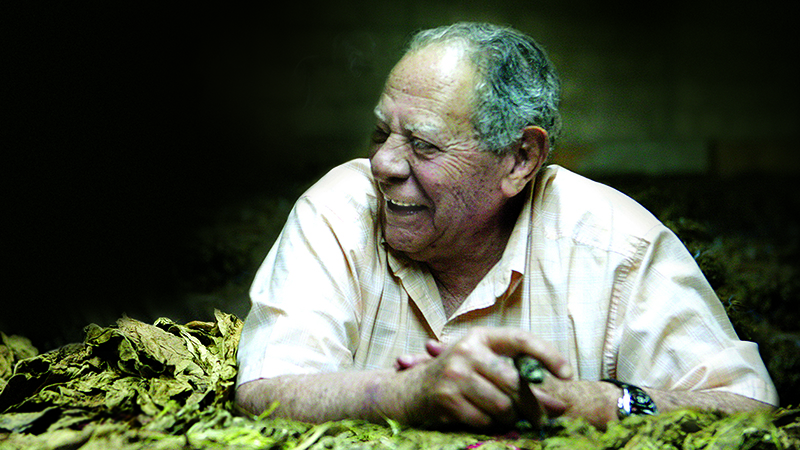Today José Orlando Padrón, a huge character in the cigar world, passed away. A true legend, capable of creating one of the most known and appreciated cigar brand of all the time.

José was born in 1926. He moved out from the Isla Grande as a result of the Revolution, as many famous families who experienced their lands expropriated by the regime.
José stops in several countries across the Globe before settling down in Miami. After having spent the first few months looking for a job without any luck, making a living out of a minor state help provided to Cuban refugees, he is given a small hammer as a present. This tool allows him to accomplish some woodwork in addition to his daily gardener job. In 1964, thanks to the savings he built up, he starts a small, Miami Little Havana based production (200 cigars a day, and one only active torcedor): the first manufactured cigar was sold six months after the activity was started. Cigars were manufactured during the day, and sold in the night, 30 cents by piece. In 1967 he establishes connection with a tobacco producer, who asks him for opinions on the quality of the leaves his company is growing in Nicaragua, supposed to be sold on the European market. José agrees to perform this consultancy in the Jalapa fields, well before the tobacco industry starts to move in the direction of this country. It goes without saying it was love at first sight. José immediately understood it was high quality tobacco, with great potentialities.
Thus, in 1970, José moves to Nicaragua, in the heart of Estelì, where he establishes Tabacos Cubanica S.A., another manufacturing industry. Only around twenty Cuban exiles live in the country, while only 3 companies are working on tobacco-related products: José’s, one belonging to President Anastasio Somoza and Fonticiella. He develops a professional friendship with Somoza, but he scares off politics. He then starts working with this tobacco, growing production to 7.000 cigars a day.
Sandinist revolution however generates a major chaos, ultimately resulting in civil war. In 1978 many buildings, including José’s factory, are burnt. Due to this event, he decides to move to safer waters nearby Danlì, in Honduras. It is the summer of 1979. The tobacco used for the manufacturing is still from Nicaragua, since José has been able to ship it via an incredibly adventurous flight.
Year after year the situation in Nicaragua cooled down, and José decides to let the production restarts.
Not forgetting his Cuban origins, José flies to Cuba together with other businessmen, in the attempt to discuss the liberation of some political prisoners. During that event he had the chance to meet Fidel Castro, who ended up by smoking a Padrón cigar during the meeting. 3600 prisoners were then released as a result of that meeting.
In 1985 the US president Ronald Reagan approved embargo for the products originating from Nicaragua, forcing José to stop activities in his factories and to restart manufacturing in Honduras. In 1990 Nicaraguan top political levels changed and the embargo was cancelled.
In 1993 Padrón cigars are commercialized all across US and the year after the Serie 1964 Aniversario is created, to celebrate 30 years of the brand. In 2002, to celebrate José’s 75° birthday the Linea 1926 is launched, and in 2004 the first of the Anniversary Series appears which, being very well received by smokers, is followed by several other editions year after year.
2016 is the 90 candles year for José, and a new cigar in his honor could not be missed: the Padrón Serie 1926 90th Anniversary is thus created, a cigar completely opposing Padrón aesthetics: it is in fact not box pressed, and it is commercialized in tubos.
The 5th Dicember José, in the first hours of the day, passed away. He will be always remembered as a true legend in the cigar world.

